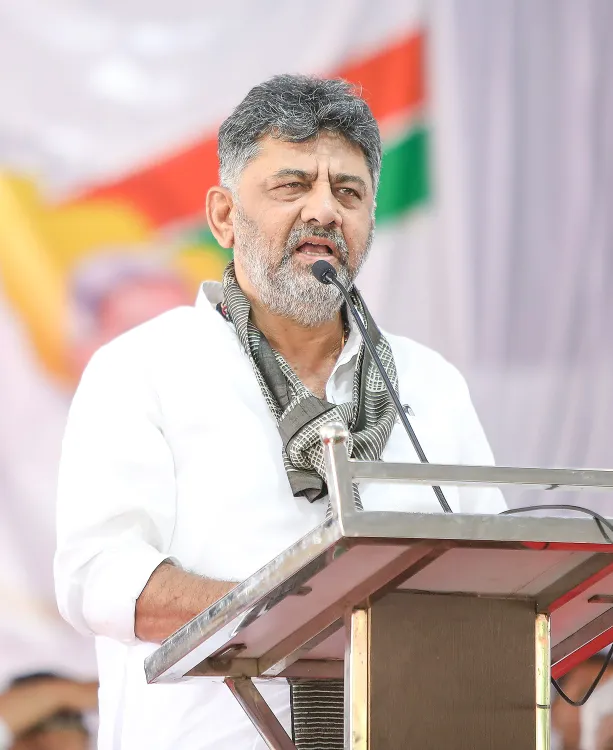Is the Karnataka Government Committed to Establishing 5 Municipal Corporations in Bengaluru?

Synopsis
Key Takeaways
- Karnataka government is committed to creating five municipal corporations in Bengaluru.
- Deputy Chief Minister D.K. Shivakumar addresses opposition and legal challenges.
- The Greater Bengaluru Authority is central to urban governance.
- Political concerns are influencing public perceptions and discussions.
- A PIL has been filed challenging the GBA's constitutionality.
Bengaluru, July 21 (NationPress) The Karnataka government has reaffirmed its dedication to the creation of five municipal corporations in Bengaluru, as part of the newly established Greater Bengaluru Authority (GBA).
During a press briefing in Bengaluru, Deputy Chief Minister D.K. Shivakumar, who also holds the position of Bengaluru Development Minister and oversees the Bengaluru Urban District, responded to concerns raised in a Public Interest Litigation (PIL) questioning the legality of forming these five corporations under the GBA.
"Everyone has the right to voice concerns; that is their democratic privilege and it cannot be limited. Should any mistakes arise in our approach, we are prepared to correct them. Nevertheless, the government remains steadfast in its plan to establish five municipal corporations in Bengaluru," stated Shivakumar.
He continued, "I have organized discussions with BJP leaders, sought their input, and even formed a joint legislative committee for further discussions. Objections can still be made today. However, some concerns are being raised for political gain. We are moving forward with this initiative in the best interest of Bengaluru."
Shivakumar also announced plans to hold a press conference soon to inform both the media and the public about topics related to 'A Khata, B Khata, the e-Khata campaign, taxation, and the proposed municipal corporations.
In response to inquiries about dividing Bengaluru into five municipal corporations, former Chief Minister and BJP MP Basavaraj Bommai expressed that such a division should not undermine the city's importance. "If there exists a city that surpasses the four major metropolitan cities in the nation, it is Bengaluru. The city holds global significance too. We must ensure that this division does not create disparities in development. Establishing separate corporations solely for political reasons is inappropriate," he remarked.
He further highlighted that 110 villages had previously merged into the BBMP, yet those areas remain underdeveloped. "If all these regions are once again consolidated under a single corporation, they will not experience growth," he added.
Meanwhile, a PIL has been submitted to the Karnataka High Court by Citizens’ Action Forum (CAF), a consortium of residents and civil society leaders. The petition seeks to suspend several sections of the Greater Bengaluru Governance Act, 2024, claiming these provisions are unconstitutional, arbitrary, and unreasonable.
The PIL also contests the very establishment of the GBA—its composition, authority, and functions—which include urban planning, infrastructure development, and the coordination of local bodies such as the Bruhat Bengaluru Mahanagara Palike (BBMP).
Petitioners argue that the powers granted to the GBA under the Act infringe upon the 74th Constitutional Amendment, which confers local self-governance powers to municipal entities.
According to the new Act, the GBA has the authority to issue directives, acquire land, manage financial resources, and delegate powers to municipal corporations. These corporations are tasked with managing public markets, collecting taxes, and forming ward committees to enable decentralized governance. Specifically, the petition challenges the constitutional validity of sections 9, 10, 13, 14, 15, 85, 95, 96, 100(2)(iv), 101, 103(4), 129(2), 130, 137(2), 145, and 249 of the Act, which was officially announced by the state government on April 24.









